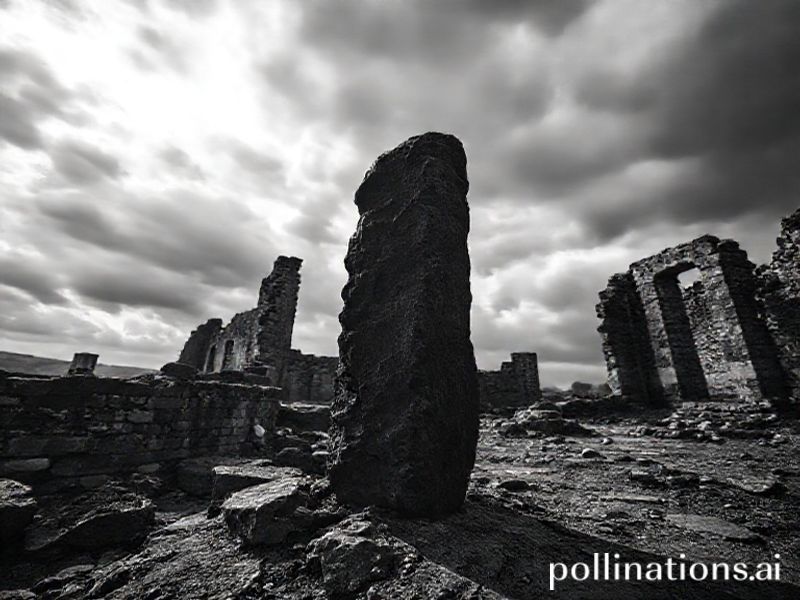Blackstone: The Dark Knight of Wall Street Rises in Global Fame
# Blackstone: The Dark Knight of Wall Street Rises in Global Fame
Alright, folks, grab your pitchforks and your spreadsheets, because we’re diving into the world of Blackstone, the shadowy titan of private equity that’s been trending harder than a viral TikTok dance. If you’ve been living under a rock (or just avoiding the business section of your news app), Blackstone has been making waves globally, and we’re here to break down why this financial powerhouse is suddenly everyone’s favorite (or least favorite) topic of conversation.
## What is Blackstone, and Why Should You Care?
Blackstone is a private equity firm, which is just a fancy way of saying they’re in the business of buying, improving, and selling companies—kind of like a high-stakes game of Monopoly, but with real people’s jobs and livelihoods on the line. Founded in 1985 by the dynamic duo of Stephen Schwarzman and Pete Peterson, Blackstone has grown into a behemoth with a staggering $948.5 billion in assets under management as of 2023. That’s a lot of zeroes, folks.
So, why is Blackstone trending globally? Well, for starters, they’ve been on a buying spree that would make even the most avid Black Friday shopper blush. From hotels and office buildings to data centers and even entire neighborhoods, Blackstone has been snapping up assets left and right. But it’s not just their shopping habits that have people talking—it’s the impact they’re having on everything from housing markets to the environment.
## Cultural Context: The Rise of the Financial Overlords
Blackstone’s rise to prominence coincides with the broader trend of private equity firms becoming increasingly influential in the global economy. These firms operate in the shadows, far from the scrutiny of public markets, which has led to both admiration and criticism. On one hand, they’re seen as savvy investors who can turn around struggling companies and create value. On the other hand, they’re often accused of prioritizing profits over people, leading to job cuts, wage suppression, and even environmental degradation.
Blackstone’s cultural impact extends beyond the boardroom. The firm has become a symbol of the growing power and influence of private equity, sparking debates about the role of these firms in society. From documentaries like “The Blackstone” to countless think pieces and op-eds, Blackstone has become a lightning rod for discussions about capitalism, inequality, and the future of work.
## Social Impact: The Good, the Bad, and the Ugly
Let’s start with the good. Blackstone has been credited with revitalizing distressed assets and creating jobs. For example, their investment in Hilton Hotels helped turn around the struggling company and create thousands of jobs. They’ve also been active in the renewable energy sector, investing in wind and solar projects that are helping to combat climate change.
But the bad and the ugly are where things get interesting. Blackstone has faced criticism for its role in the housing crisis, with some accusing the firm of driving up rents and contributing to gentrification. They’ve also been accused of prioritizing short-term profits over long-term sustainability, leading to environmental degradation and worker exploitation.
Perhaps the most controversial aspect of Blackstone’s business model is its use of leverage. By borrowing heavily to finance their investments, Blackstone can amplify their returns—but it also amplifies the risks. When things go wrong, as they did during the financial crisis, the fallout can be devastating for workers, communities, and even the broader economy.
## Why Blackstone Matters
So, why should you care about Blackstone? Because they’re a microcosm of the broader trends shaping our economy and our society. They’re a symbol of the growing power and influence of private equity, and their actions have real-world consequences for people around the globe.
Moreover, Blackstone is a case study in the tensions between capitalism and community, between profits and people. As we grapple with the challenges of the 21st century—from climate change to income inequality—understanding the role of firms like Blackstone is more important than ever.
## The Bottom Line
Blackstone may not be a household name like Apple or Amazon, but their influence is just as profound. As they continue to shape the global economy, it’s up to all of us to hold them accountable and demand a more equitable and sustainable future. So, the next time you see Blackstone trending, don’t just scroll past. Dive in, do your research, and join the conversation. Because in the game of Monopoly that is our economy, we’re all players—and we all have a stake in the outcome.







